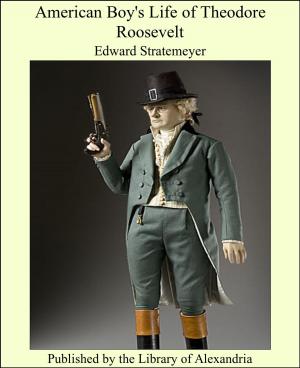Brave and True: Short Stories for Children by George Manville Fenn and Others
Nonfiction, Religion & Spirituality, New Age, History, Fiction & Literature| Author: | George Manville Fenn | ISBN: | 9781465620361 |
| Publisher: | Library of Alexandria | Publication: | March 8, 2015 |
| Imprint: | Language: | English |
| Author: | George Manville Fenn |
| ISBN: | 9781465620361 |
| Publisher: | Library of Alexandria |
| Publication: | March 8, 2015 |
| Imprint: | |
| Language: | English |
Little Kirl kept the goats on the mountain. Little Kirl was very little, his legs were very short, his body was very round and chubby, and he could certainly not have overtaken an active and badly-disposed goat, whatever had been the consequences. So it was a fortunate thing that they did not require much herding. He had only to drive them to the pastures on the mountain in the morning, and home again in the evening, and the young ones followed the old ones, round whose necks the tinkling bells were hung. Little Kirl had only begun to keep the goats this summer, and he thought when one has become a real live goat-herd one is in a fair way to become a man. How all the other little boys in the village must envy him—poor things, not yet promoted to manhood! And he had a crooked stick also, and a little pipe on which he could really play several notes; and this was the way he went up the mountain. First there were the goats to be driven out of the gate, and what a thing it was to walk after them, playing those three notes with variations, and trying not to look too proud of himself! It was not a very large village, to be sure, the little cluster of brown chalets and the tiny pink-washed church beside the pine-wood; but to Kirl it was a whole world looking on and admiring. He blew his three notes louder with a more and more cheerful trill all down the street. At the cross-roads below the church the greatest caution had to be exercised to keep the frisky kids from going the wrong way, but it was worth the trouble. Only think how well it looked to drive them close together, and to fence them off, first on one side and then on the other, with the crooked stick, and then, with an air as if he thought nothing of it, turn them all successfully into the narrow path, and strike up the three notes more gaily than ever! It was the pride of Kirl’s heart to count the goats up in a business-like manner, and call them by name, and shout “thou” to them, as if he were quite hard-hearted, instead of loving them with all his might. There was one goat in particular that was the pride of Kirl’s heart; she was not more than a kid, and snowy white, with a beautiful little head and a bright eye, a credit to any man’s herd. How little Kirl loved her! He called her Liesl, as if she had been his sister. The path led upwards first through the pine-woods, with moss a foot deep on either side, where the wood was damp with the dividing arms of the stream, and the moss on the trees hung in solemn grey clusters, like banners swinging from the branches. And then the path grew steeper and runnels of water dripped down the rocks, all covered with ferns and saxifrage. Down below on one side lay the rushing stream and the valley where the village was, and up above on the other side rose the great mountains, dark with pine-woods about their feet and glittering with snow upon their heads.
Little Kirl kept the goats on the mountain. Little Kirl was very little, his legs were very short, his body was very round and chubby, and he could certainly not have overtaken an active and badly-disposed goat, whatever had been the consequences. So it was a fortunate thing that they did not require much herding. He had only to drive them to the pastures on the mountain in the morning, and home again in the evening, and the young ones followed the old ones, round whose necks the tinkling bells were hung. Little Kirl had only begun to keep the goats this summer, and he thought when one has become a real live goat-herd one is in a fair way to become a man. How all the other little boys in the village must envy him—poor things, not yet promoted to manhood! And he had a crooked stick also, and a little pipe on which he could really play several notes; and this was the way he went up the mountain. First there were the goats to be driven out of the gate, and what a thing it was to walk after them, playing those three notes with variations, and trying not to look too proud of himself! It was not a very large village, to be sure, the little cluster of brown chalets and the tiny pink-washed church beside the pine-wood; but to Kirl it was a whole world looking on and admiring. He blew his three notes louder with a more and more cheerful trill all down the street. At the cross-roads below the church the greatest caution had to be exercised to keep the frisky kids from going the wrong way, but it was worth the trouble. Only think how well it looked to drive them close together, and to fence them off, first on one side and then on the other, with the crooked stick, and then, with an air as if he thought nothing of it, turn them all successfully into the narrow path, and strike up the three notes more gaily than ever! It was the pride of Kirl’s heart to count the goats up in a business-like manner, and call them by name, and shout “thou” to them, as if he were quite hard-hearted, instead of loving them with all his might. There was one goat in particular that was the pride of Kirl’s heart; she was not more than a kid, and snowy white, with a beautiful little head and a bright eye, a credit to any man’s herd. How little Kirl loved her! He called her Liesl, as if she had been his sister. The path led upwards first through the pine-woods, with moss a foot deep on either side, where the wood was damp with the dividing arms of the stream, and the moss on the trees hung in solemn grey clusters, like banners swinging from the branches. And then the path grew steeper and runnels of water dripped down the rocks, all covered with ferns and saxifrage. Down below on one side lay the rushing stream and the valley where the village was, and up above on the other side rose the great mountains, dark with pine-woods about their feet and glittering with snow upon their heads.















